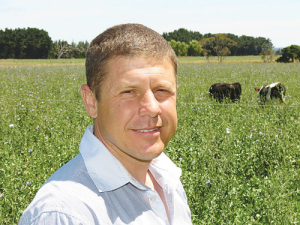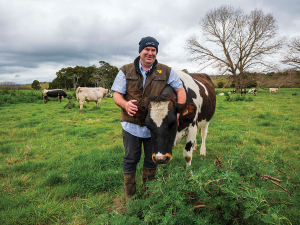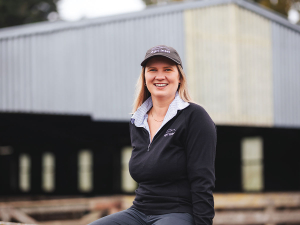"We are open for business."
That's the clear message from the head of Massey University's School of Agricultural and Environment, Professor Paul Kenyon.
There has been some confusion about which courses at Massey University might be closing, as it goes through its current 'proposal change process'.
This has led many people to draw the conclusion that Massey is cutting its suite of agricultural science degree programmes.
That is not the case.
Massey has been getting enquiries regarding what the proposed changes might mean for the agricultural courses at the university. This has prompted Kenyon to go public and set the record straight.
"To suggest that Massey is no longer in the business of teaching quality agricultural and horticultural courses is completely wrong," he told Rural News.
"As a school, we are investing significantly in our resources. We have been and continue to employ new staff, as well as upgrading our facilities on our farms. I am concerned that people are getting the impression that Massey is no longer involved in agriculutre and horticulture - because that is far from the case."
Kenyon says the current cuts in science do not directly relate to the Bachelor of Agricultural Science, Bachelor of Horticultural Science, Bachelor of Agribusiness, Bachelor of Animal Science, Bachelor of Science (Environmental Science major) and Bachelor of Science (Earth Science major), as well as their associated postgraduate programmes, masters and PhD programmes.
Kenyon told Rural News that usually in the first year, across those six programmes, they have about 200 to 230 students and traditionally they have had good strength.
He is concerned that people think those programmes aren't open for business.
Kenyon added that, prior to the current confusion, the university had seen renewed interest in the various agricultural and horticultural graduate courses.
He says his school has a huge number of scholarships to help reduce any financial burden to prospective students.
Kenyon says the message from industry is that they want more graduates to fill the vacancies across the whole spectrum of the primary sector.
Hort A Great Option
There is especially high demand from the horticulture sector for graduates.
Kenyon says if he had his time again, he would do a horticulture degree.
"Going forward that sector will be a real strength for NZ and there's a real opportunity for students to build a fulfilling career in that sector," he told Rural News.
"The misconception people have is that if you come to do a hort degree, you are going to end up in low paying, low level role picking or pruning. But we are actually training people for jobs across the value chain ranging from orchard managers through to packhouse managers through to exporters and other key roles across the whole value chain."
Kenyon says horticulture needs young, innovative minds that are willing to do things differently. Looking to the future, he believes that technology will play a massive role in horticulture's growth. He says agriculture and horticulture will both require people who can manage large databases.
"People need to embrace technology and not be afraid of it and recognise the positive impact it can have to grow all farming systems. I think there has never been a better time for young people to get into agriculture and horticulture."



















